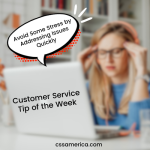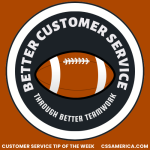
Should I stay or should I go? That’s not just a classic song by The Clash. It’s also the question customers ask more and more, especially during difficult economic times.
A recent study in the Charlotte Business Journal noted that 50% of North Carolina businesses are concerned with how to maintain their existing customer base. Even after almost one year of dealing with COVID-19, that concern continues – understandably so.
Customers are the life of any business, so sustainability and growth as an organization depends largely on retention and growth of the customer base. Since the question I’m highlighting from the Business Journal study focused on existing customers, let’s talk about your current base of clients.
For you to maintain your existing customer base – before developing strategies or launching some major personalized reach-out campaign – let’s pause. Let’s first determine what information we don’t know, and then let’s ask our existing customers to supply us with the information we need to keep them!
Retention: Why did our customers begin working with our companies? What about our products, our services, our people brings them the most value? Why do they stay with us? Why would they leave?
Growth: Are they aware of our array of products and services – especially those that they don’t currently use? Do they know about new customer processes or technology, policies or perks that could benefit them? Are they aware of special values, resources, or unique opportunities available to them as existing customers?
Future Plans: How likely are they to stay with us, to purchase more, to want to upgrade what they get from us? How likely are they to look elsewhere for our types of services, and who else is competing for their interest or their dollar?
Every day, our customers are asking themselves whether they should stay or go. Let’s make sure we’re asking them the questions so that we have the answers we need to keep them for the long-term.
Get customers to tell you why they would stay.
Signup for FREE Tips! Contact Us More Resources for You Visit Our Home Page























